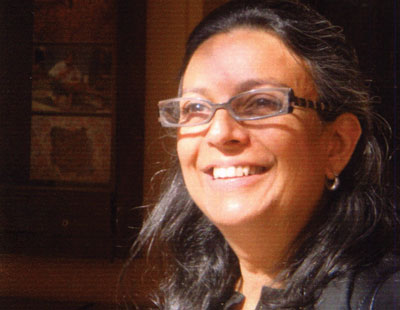Thursday, April 8, 2010, 5:30pm | Center for Creative Photography 108
Lecture: Imagining Justice in Uncertain Times: Notes for the Classroom
Dipti Desai is an Associate Professor and Director of the Art Education program at New York University. Prior to coming to NYU, she taught Art Education at SUNY-New Paltz. Her teaching career involves two years in New Zealand, where she taught courses in Education at Victoria University in Wellington. She also has extensive experience teaching students from diverse cultural and ethnic backgrounds at the elementary and middle school level in the United States, India, and New Zealand. She has co-authored the book History as Art, Art as History: Contemporary Art and Social Studies Education (2009), published by Routledge. Her work has been published in several journals and books, including Studies in Art Education, Journal of Cultural Research in Art Education, Multicultural Perspectives, Democracy and Education, and Journal of Curriculum and Pedagogy. She serves on the editorial board of several journals in art education and advisory boards for non-profit organizations in NYC. She is the current Senior Editor for the Journal of Cultural Research in Art Education and a guest Editor for the Journal of Equity and Excellence.
Lecture Synopsis:
Today we learn about terrorism and immigration, projected through the lens of justice, largely from visual sites of public pedagogy (i.e. television, Internet, films, etc.). Given the pervasive and persuasive agenda of public pedagogy, schools have to rethink what it means to educate students in a visual age where new modes of information and cultural production dominate how knowledge is shaped and circulated. In this talk Desai will explore the ways justice is represented in other visual sites, such as contemporary art practices, by focusing on two interconnected areas of issue in our society: incarceration and immigration. These two areas, under neo-liberal capitalism and increased militarization of our society are forging new alliances of state sanctioned injustices, where people of color and the working class are paying the highest price. Public pedagogy and educational practices in schools, through the enforcement of the zero tolerance policy, have contributed to the continued criminalization of youth and the more recent criminalization of immigrants. Drawing on the work of contemporary artists, this criminalization feeds into the fastest growing industry in the U. S., the prison industrial complex and more recently the immigration industrial complex, both of which are racialized and gendered forms of state sanctioned justice.
Transculturations: Cultural Hybridity in American Art | VASE 2009-2010
Panel Discussion
Thursday, January 21, 2010, 5:30pm | Center for Creative Photography 108









